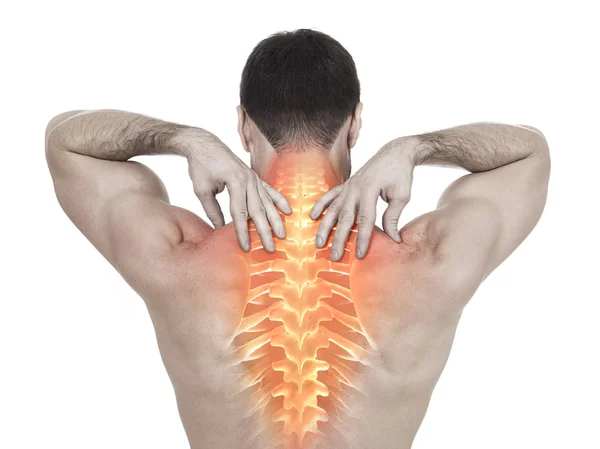Based in San Diego, CA and Tijuana, MX - Accepting Patients Worldwide
Is Degenerative Disc Disease Hereditary? Everything You Need to Know
It is a well-known fact that as one ages, their spinal discs have a possibility of degenerating. According to statistics, approximately 30% of individuals will experience some form of disc degeneration by the age of 35. This high prevalence may lead one to question whether is degenerative disc disease hereditary. Although it is not completely genetic, one’s genes can make them more susceptible to this condition. While an individual’s genes can impact the composition of their intervertebral discs, various other elements such as age, lifestyle, and environmental factors also play a significant role.
Degenerative disc disease can reduce mobility and cause pain in your spinal discs. Though traditional treatments can provide relief, innovative options like stem cell therapy are also emerging. This promising technique uses your body’s cells to stimulate healing, potentially revolutionizing the way we manage degenerative disc disease.
Is Degenerative Disc Disease Hereditary?
Degenerative disc disease has long been a topic of interest among researchers and those affected by the condition. While its exact causes are complex and multifaceted, studies suggest that certain genetic factors can influence your susceptibility to this disease. These factors can impact the composition and structure of your intervertebral discs—the soft cushions between your vertebrae that facilitate spinal flexibility.
Get an Appointment
Complete The Form Below And We’ll Get Back To You Immediately.
Get an Appointment
Complete The Form Below And We’ll Get Back To You Immediately.
It’s important to note that degenerative disc disease is not solely dictated by genetics. Other factors like age, lifestyle choices, occupation, and injuries also contribute to its onset and progression. Aging naturally leads to disc wear and tear, but genetic variations can accelerate this process. Sedentary lifestyles, obesity, smoking, and physically demanding jobs can further exacerbate the condition.
Despite its painful symptoms, treatment options are available for those living with this condition. By addressing genetic predisposition alongside lifestyle factors, you can work towards minimizing the impact of this prevalent ailment.
Tips for Managing Your Degenerative Disc Disease
To live a healthy and fulfilling life with degenerative disc disease, it’s important to take a holistic approach to healing your body. Although living with this disease can be difficult, there are several strategies you can use to manage your symptoms and maintain your overall well-being.

Engaging in physical activity
Regularly participating in low-impact exercises is crucial for maintaining a healthy spine. Activities such as walking, swimming, and gentle yoga can aid in maintaining flexibility, strengthening supporting muscles, and improving blood circulation to the spine. In addition, building a strong core can provide stability to your spine, thereby reducing strain on the discs. It is recommended that you consult a physical therapist to develop a personalized exercise regimen that focuses on core strengthening without aggravating your condition.
Maintaining good posture
Maintaining good posture is important for reducing strain on your spine. It's crucial to maintain adequate alignment whether you're sitting, standing, or lifting, as it can help alleviate discomfort.
Maintaining Proper Nutrition and Hydration
A diet that is rich in nutrients can support the overall health of your tissues and reduce inflammation. Furthermore, staying well-hydrated can help maintain your discs' shock-absorbing properties. In order to relieve pressure on your spine, it is also important to maintain a healthy weight. By following a balanced diet and engaging in regular exercise, you can achieve and sustain a healthy weight.
Managing Pain
When experiencing flare-ups, you may find relief through the use of over-the-counter pain relievers, ice or heat therapy, and relaxation techniques. It is important to consult with your doctor before using any pain medication.
Ergonomic Assistance
Make changes to your work and home environment by including ergonomic furniture and tools. These adjustments can substantially reduce the strain on your back. Additionally, incorporate gentle stretching routines into your daily activities to maintain joint mobility and reduce muscle tension. Invest in a mattress and pillows that provide proper spinal support while sleeping. It is essential to find a comfortable sleeping position that aligns your spine.
Routine Health Check-ups
It's important to keep in touch with your healthcare provider for regular check-ups. This way, they can keep an eye on the progression of your condition and make any necessary adjustments to your management plan. It's normal to find coping with chronic pain emotionally challenging. If you're struggling, consider reaching out to friends, family, or a mental health professional for support. This can help you manage stress and maintain a positive outlook.
By implementing these strategies and adapting them to your specific needs, you can take charge of your degenerative disc disease and work towards a fulfilling life. Keep in mind that each person’s journey is unique, so remain patient and persistent as you navigate the challenges of this condition.
Treatments for degenerative disc disease vary depending on the severity of the condition. Conservative options include physical therapy, pain medication, and injections, while surgical options like microdiscectomy or spinal fusion are used for advanced cases. Another option that is minimally invasive and more holistic is stem cell therapy, which has the potential to regenerate the discs and improve disease management.
Stem Cell Therapy for Degenerative Disc Disease
Stem cell therapy is a cutting-edge approach to treating degenerative disc disease. It involves using stem cells, which have the ability to differentiate into various cell types, to encourage the regeneration of damaged intervertebral discs.
According to research, stem cells have shown promise in aiding the regeneration of damaged discs. A recent review study published in Current Stem Cell Research and Therapy in 2023 concluded that stem cell-based therapies have been heavily researched for treating disc damage over the past ten years, with various studies obtaining promising results. The concept behind stem cell therapy for degenerative disc disease is to introduce these adaptable cells into the affected disc, where they can encourage tissue repair and slow down the degenerative process.
If you are thinking about using stem cell therapy to treat degenerative disc disease and have questions beyond whether the condition is degenerative disc disease hereditary or not, please get in touch with our medical experts at Renovo Health and Beauty.
Renovo Health and Beauty Offers Stem Cell Therapy for Degenerative Disc Disease.
Experience a renewed sense of hope at Renovo Health and Beauty with our innovative stem cell therapy for degenerative disc disease. Take advantage of this opportunity to tap into the healing power of your own body and embark on a journey towards a life free of pain. Consult with our team of experts to discover the possibilities and take control of your overall well-being.
Get in touch with us today by filling out this form or giving us a call at 619 407 7878 to find out more about our regenerative therapies and how they can assist you in managing your degenerative disc disease.


